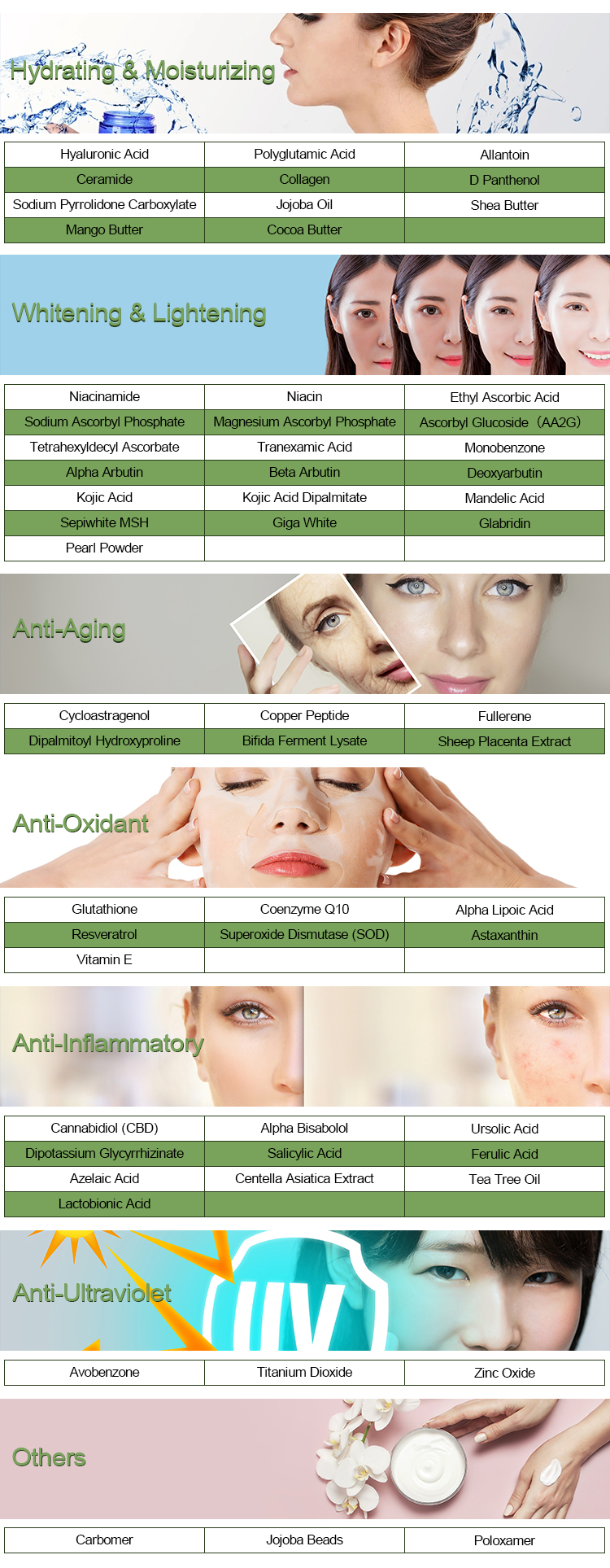Alpha arbutin is a natural skin-lightening agent that is commonly used in cosmetics and skincare products. It is derived from the bearberry plant (Arctostaphylos uva-ursi) and other plant sources. The basic ingredient of alpha arbutin is a glycosylated compound called arbutin. Here’s a breakdown of its basic ingredients:
Arbutin: Arbutin is a naturally occurring compound found in various plant species, including bearberry, cranberry, and blueberry. It is a glycoside, which means it is a sugar molecule (glucose) attached to a bioactive compound. Alpha arbutin is specifically a type of arbutin where the glycoside bond is in the alpha form.
Water: Alpha arbutin is typically formulated in a water-based solution, making it suitable for various skincare and cosmetic products. Water serves as the primary solvent in which arbutin is dissolved to create a stable and effective solution.
These two basic ingredients are the primary components of alpha arbutin products. Alpha arbutin is known for its ability to inhibit the formation of melanin, making it a popular choice for individuals looking to address hyperpigmentation and achieve a more even skin tone. It is often included in serums, creams, and other skincare formulations for this purpose.

Efficacy and Action of Alpha Arbutin
Alpha arbutin is a naturally occurring compound found in various plants, primarily in the bearberry plant. It is commonly used in skincare and cosmetic products for its potential skin-brightening and hyperpigmentation-reducing properties. Alpha arbutin works through several mechanisms:
Inhibition of Tyrosinase: Alpha arbutin inhibits the activity of the enzyme tyrosinase, which is essential for the production of melanin, the pigment responsible for skin color. By inhibiting tyrosinase, alpha arbutin can help reduce the production of melanin, which may lead to a more even skin tone and decreased appearance of hyperpigmentation, such as age spots and melasma.
Melanin Production: Alpha arbutin can reduce melanin synthesis by inhibiting the oxidation of dihydroxyphenylalanine (DOPA), a precursor to melanin.
Skin Lightening: It is considered a safer alternative to hydroquinone, a well-known skin-lightening agent that has been associated with potential side effects. Alpha arbutin can help lighten skin, improve the appearance of dark spots, and minimize the effects of sun damage.
Hyperpigmentation: Alpha arbutin is often used to address various forms of hyperpigmentation, including post-inflammatory hyperpigmentation, sun spots, and melasma.
Slow-Acting: It’s important to note that the effects of alpha arbutin are gradual, and results may take several weeks or even months to become noticeable. Patience and consistent use are key to achieving the desired skin-brightening results.

Skin-Friendly: Alpha arbutin is generally considered safe for most skin types and has a lower risk of causing irritation compared to some other skin-lightening ingredients.
Complementary Ingredients: Alpha arbutin is often used in conjunction with other skincare ingredients such as antioxidants (e.g., vitamin C) and sunscreen to enhance its effectiveness and protect the skin from further damage.
It’s important to note that individual results may vary, and not everyone will experience the same level of improvement with alpha arbutin. As with any skincare product, it’s advisable to perform a patch test before using it on a larger area of your skin, especially if you have sensitive skin, to ensure that you don’t experience any adverse reactions. If you have concerns about hyperpigmentation or skin-related issues, it’s also a good idea to consult a dermatologist for personalized advice and treatment recommendations.
